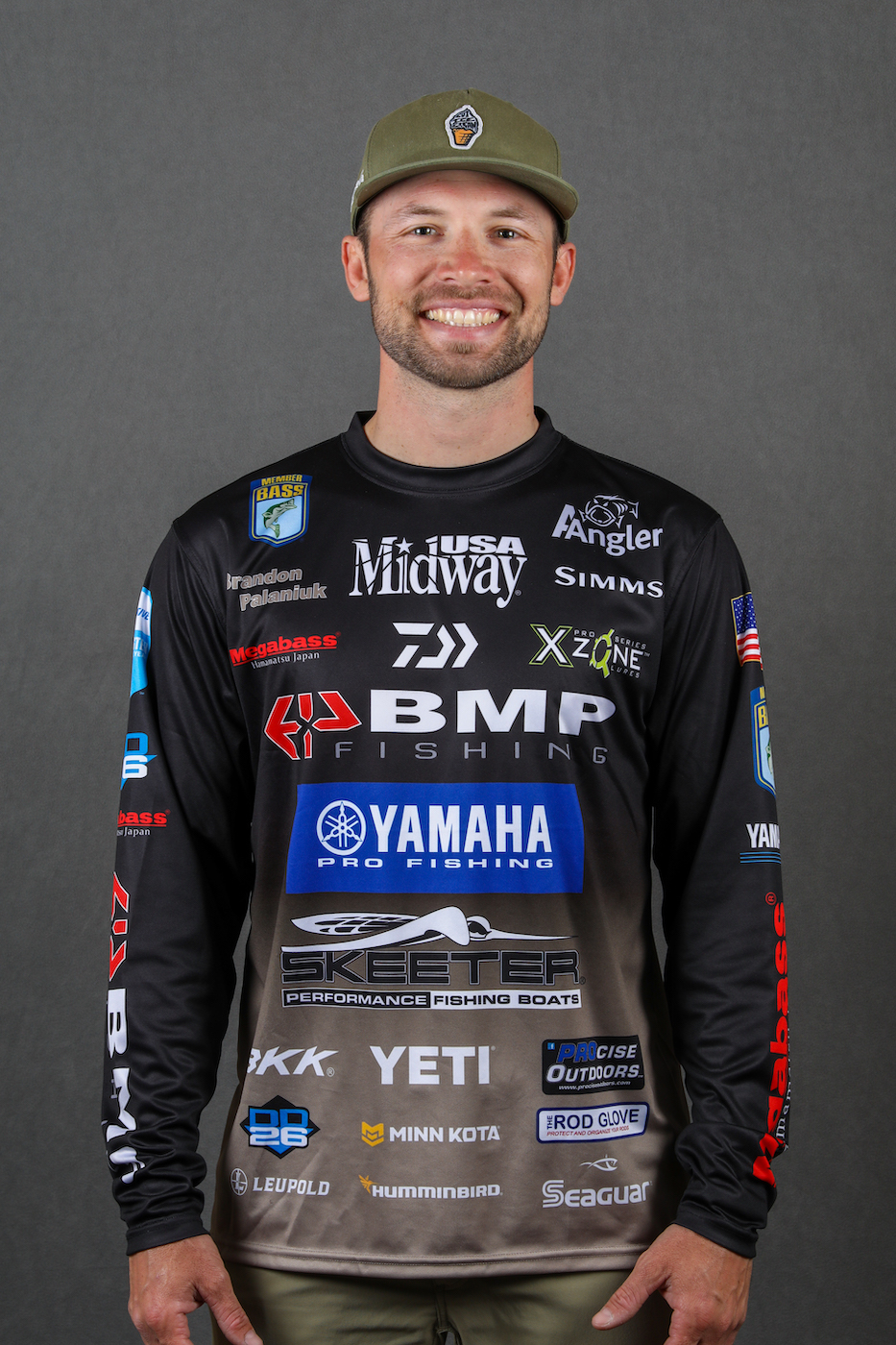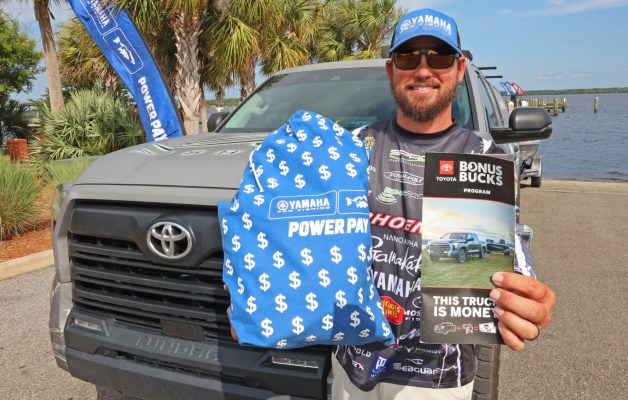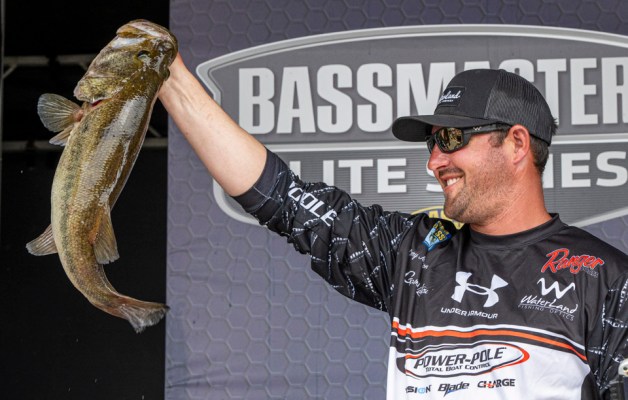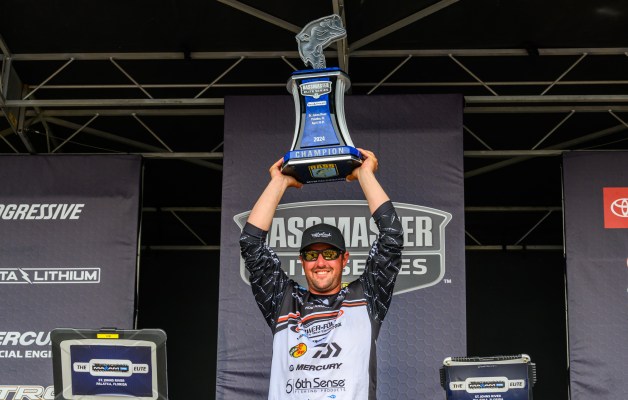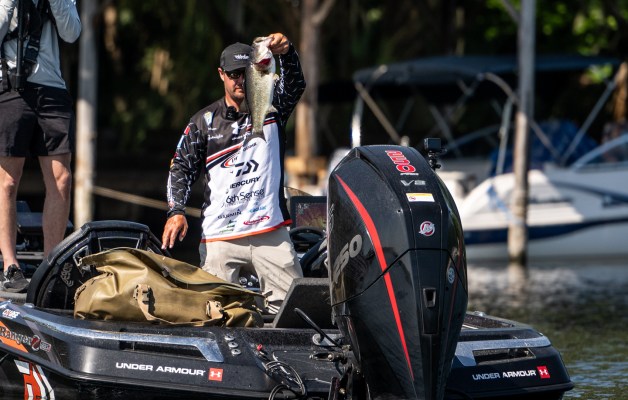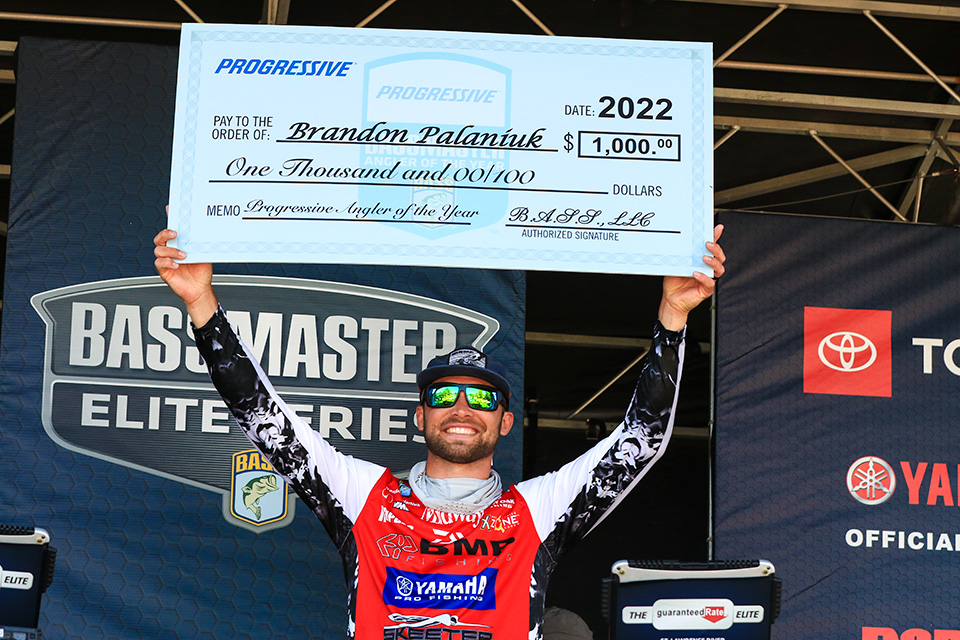
As many of you know, I do not follow the Progressive Bassmaster Angler of the Year points race closely. But I’d be lying if I said I didn’t know I am leading that race heading into the final two events of the year. I won the trophy in 2017, so I am also acutely aware of what it would mean to win a second AOY trophy.
In just over 50 years of B.A.S.S. competition, only 11 anglers have won multiple AOYs. That’s a small group, and it does not include several of the first ballot Hall of Famers. Some of them have won only one such award, or perhaps none. That group of 11 is a very exclusive club.
I can only speak from personal experience, but when I won in 2017 I thought I knew how hard it is to achieve that goal. Individual wins are incredibly special because they’re so difficult, but maintaining consistency over the course of an entire season is even more daunting. At this level of competition, any little stumble can be punished severely.
Since 2017 a lot has changed in the fishing world and in my life. To be totally honest, what has changed for me from a fishing perspective is that I realized how incredibly hard it is to win AOY. I’ve gotten close again, but I haven’t been able to seal the deal despite my best efforts. That’s a big part of why I want to close it out in South Dakota and Wisconsin. I know that the windows of opportunity are tight, and with the increased caliber of anglers every year, they’re getting even smaller.
When I won in 2017, I had to dig myself out of the unenviable hole of an early-season 105th-place finish at Lake Okeechobee. Florida has always been sort of my nemesis, and we started there again this year at the St. Johns and then the Harris Chain. When I left the Sunshine State with 20th- and 26th-place finishes I vowed to myself that the latter would be my worst finish of the year. That’s easier said than done over a period of eight months, but so far things have progressed according to that plan. I cannot let off the gas.
Obviously there have been several finishes with room for improvement, but at the same time there were also a couple of tournaments where I avoided disaster. For example, my 12th-place finish at Chickamauga this year looks good on paper, but throughout practice and the tournament it felt like I was living on the edge of disaster. I ended up getting the bites I needed and putting them in the boat using a variety of techniques in multiple areas. That 12th-place finish felt like a win because it easily could have been a 60th or worse. I was proud of my decision making.
The two Florida results felt like wins because I took a tact opposite to the junk fishing strategy I employed at Chickamauga. On several occasions I just hunkered down in an area and ground out as many bites as I could. In the past I might’ve run around like crazy looking for a big bite, but that has cost me in the past. I knew that my best chance of good finishes were to sit in one place for extended periods of time.
It’s those kinds of decisions and difference that put you in position to compete for the AOY trophy. All year long I’ve been saying that 10 points here or there can be a difference maker.
On the first day at Pickwick I had 18 pounds with five minutes left to fish. I stopped on a school near the ramp and caught a 3 3/4-pounder and a 6-plus to end up in fourth place for the day with 21-13. Those 3-plus pounds might have helped me get into the cut to Day 4 and earned me some critical points. The lesson I learned the last time I won AOY was that when you have five minutes left you don’t punt. I won by only 14 points over nine events. That’s not very many. In fact, it was the accumulation of lots of small decisions and little wins.
Again, I don’t know what my margin heading into these two events might be. It could be a point, or it could be much more, but my goal at both tournaments is to win. I know that if I win the next two I cannot be beaten, so I’d like to take control of that narrative and not let anyone else have a chance.

